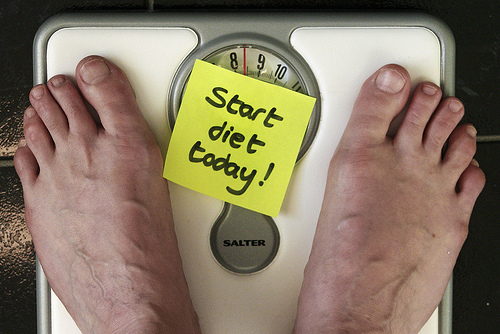Considering Weight Loss Surgery?
Considering Weight Loss Surgery? Consider this first.
Morbid obesity or clinically severe obesity is a serious condition affecting over 13 million Americans. An individual is considered morbidly obese when weighing either twice his or her ideal weight or is 100 pounds over that ideal. According to the N.I.H., National Institutes of Health, morbid obesity is associated with an increased risk of certain cancers, hypertension, and diabetes to name a few.
According to the Centers for Disease Control, there are approximately two-thirds of the adult population suffering from weight-related health conditions today. Obesity turns into “morbid obesity” at the point where it increases the risk of one or more obesity-related health conditions or serious disorders known as co-morbidities that result in either significant physical disability or even death.
Anyone considering bariatric surgery will be faced with an array of choices and alternatives. Many will arrive at a decision to pursue the procedure only after having repeatedly failed with non-surgical diet approaches. When faced with the risk of death by not having the surgery, the risk of potential post-surgical and surgical complications suddenly seem acceptable for many.
Over 170,000 will make the decision to have the surgery this year despite serious potential risk. It has been reported that the great Notre Dame football coach, Charlie Weis, experienced complications during a weight loss surgery and today walks with a noticeable limp as the result of nerve damage. The point is that this is a serious medical procedure not without risks.
There are an entire range of potential risks associated with the procedure such as: Severe wound infection, bowel obstruction, pneumonia, blood clots, acute kidney failure, liver failure, postoperative depression, bulimia, and even death.
I would like to tell you the story of Herbert. He is a client of mine. He is a successful businessman in his forties who had not been lighter than 300 pounds in the last twenty years. Only one year ago, May 2006, he weighed over 350 pounds. Today he is approximately (80) eighty pounds lighter. He recalled the moment a doctor suggested he consider bariatric surgery without ever reviewing his medical history, without considering the complete person, or anything about him as an individual. Like many others, he had lost and gained the same pounds repeatedly over the years. Lose fifty, gain fifty five, lose forty, gain forty eight. Although desperate for a solution, the decision to have surgery did not seem right nor did it feel right for him.
Herbert sought out a professional weight coach based on a referral from a friend. After discussing what his goals were not only for his weight in particular but his life in general, we agreed to begin working together in late May of 2006. Like most, Herbert knew many of the things one needs to do in order to lose weight, but he had never been able to sustain those things long enough to see the results he desired.
He began to learn not only how to lose weight by using a simple telephone number known as the code, but more importantly, how to keep it off. This simple ten-digit number outlines very specific actions he would take each day. Herbert was surprised to find out that he continued to largely eat the foods he enjoys. He commented, “This is easy, I can do this for the rest of my life.”
Losing weight does not have to be a struggle or ever difficult for that matter, but you, like Herbert, do have to know what to do, when to do it, and in what very specific amounts. You have to know the code. People tend to struggle because they have no real idea of how to successfully lose weight much less how to maintain their gains. Herbert, with the tools, the structure, and the support is moving confidently toward his goal.
Last May, Herbert was unable to walk more than the length of two football fields without having to sit and to rest. On July 4, 2007, he and I will be amongst tens of thousands participating in the 10 kilometer Peachtree Road Race in Atlanta, Georgia. Perhaps you ought to consider one more alternative before bariatric surgery. Perhaps you should consider you own personal weight and life coach.
See you later - I have to go train because I don’t want to slow Herbert down in the Peachtree.
-
Herbs For Well Being – Is This A Good Tip Or A Bad Factor?
Ask the average American to define herbs and he or she will tell you t
-
Creating a Regular Exercise Routine to Increase Weight Loss
Any successful dieter will tell you that
-
Fasting & Weight Loss -Transforming the Subconscious Mind
Many persons kick off a diet or fasting program with huge motivation a
-
Slash Diabetes Risk with Natural Diet and Fresh Vegetables
Diabetes continues to grow at a staggering rate with 1.6 million ne
-
New Chef Basket Review
The new as seen on the Chef Basket is a piece of cookware that is t
-
The 5 Best Fat Burning & Firming Rules For Women To Lose Belly Fat and Slim Down Hips and Thighs
Every week I get emails from women askin
- DON'T MISS
- Want To Lose Weight? Increase Your Metabolism Naturally
- Suffering a Stroke: Physical Therapy a Must
- Weight Loss On Your New Years Agenda Prepare For The Top Weight Loss Scams Of 2006 PART 2
- History And Background Of Low-carb Dieting
- Healthy Weight Loss Tips
- Speed Fat Loss with Ready Made Diet Meals
- New Years Fitness Resolutions How To SET Them Part 2
- How To Discover Your Ideal Weight And Keep It
- How to Use Your Web Site to Make Money
- Lose Pounds and Gain Shape says Truth About Abs Author




